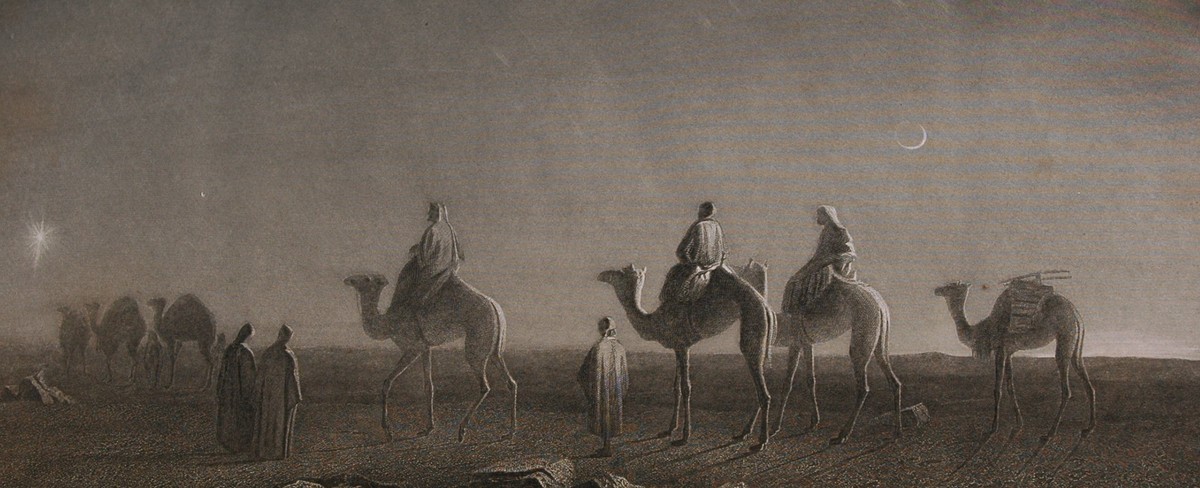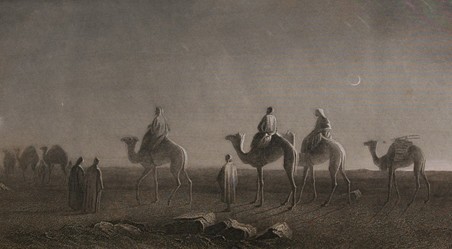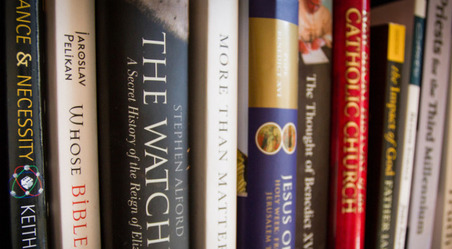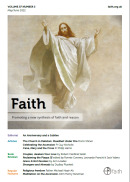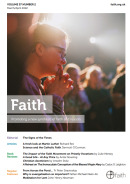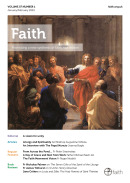Featured
Memo: please stop being intimidated
Priests of the Faith Movement
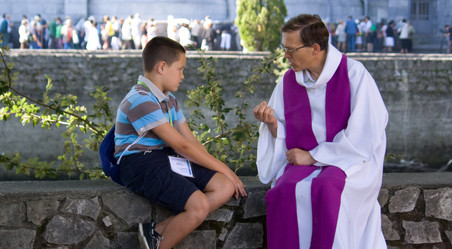
Every year I attend four national events organised by the Faith Movement (three events for youth and one for my own formation). This is a massive commitment in time, energy and money. It takes me away from my parish for the inside of a week four times a year. Yet, the reason I am absent from the parish for these events is in order that these very events might be harnessed to serve what happens in my parish.
A Year of St Dominic
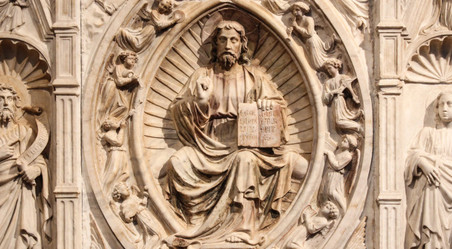
In April 1215, Fr Dominic Guzmán, with six companions, crossed the threshold of a small house in Toulouse given them by two wealthy citizens. It was the birth of one of the great Orders of the Catholic Church, the Dominicans, or to give them their proper title, the Order of Preachers. Dominic was about forty-five years old by then, and had only six more years to live, but all his life and experience up until then had been preparing him for this moment, and the six years before his death saw the Order increase at a phenomenal rate, a testimony to the divine inspiration behind it.
Engaging with Muslims
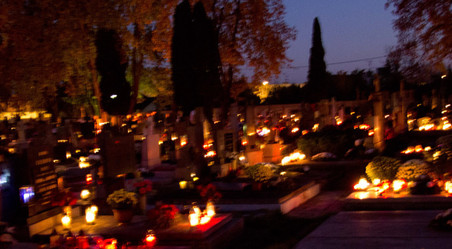
A Neglected Virtue?
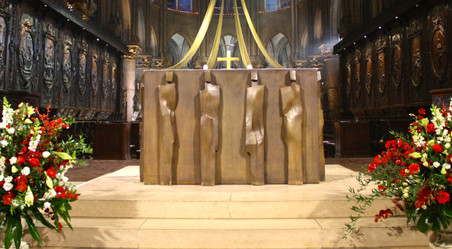
Our Holy Father Pope Francis has given us a wonderful living example of what true humility is, and humility is indeed a central theme of his Pontificate as well as being a central theme of the Year of Mercy. However, humility is not always easy to put into practice. As pointed out by St Benedict, the Father of Western
Interview: Drama and Life
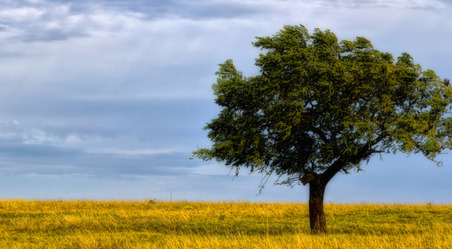
-
Memo: please stop being intimidated
“They don’t let you do Nativity plays any more, do they?” There is a conviction – or at any rate a sort of half-formed belief morphing into a conviction – that “they” have banned Nativity plays from Britain’s primary schools. It is rubbish, but because it represents a well-founded fear that Christianity is being marginalised from community life, it is fast becoming part of popular mythology.Facts first. There is no law preventing an ordinary primary school in Britain from putting on a Nativity play this Christmas. Naturally, if the school is 90 per cent Moslem, it would be a fairly stupid or – to use the currently fashionable word – an inappropriate thing to do. But where most of the children come from religiously ignorant, incoherent or indifferent households, it could be a most useful exercise, introducing pupils to one of the great narratives (that’s another very ‘now’ word) of our civilisation, and giving them a chance to sing the carols that are a standard part of our annual collective noise. A Nativity play gathers echoes from folk memories – and not just from Britain – and taps into a need to mark the seasons of the year, our sense of community and a recognition that we are not spiritual and cultural orphans.For a Catholic school, there is no question about it at all. Catholic primary and secondary schools can, do and should, as a matter of course, mark Christmas on a great scale. (In fact, the problem is, at a liturgical level, precisely that: in a laudable desire to encourage a joyful celebration, they inevitably sideline Advent, and pre-empt Christmas as term ends with plays and carols and mince pies galore. But that’s a separate issue…) Nevertheless – and this is the important point – there is this sense of worry. An air of “Are we allowed to do this?” pervades discussions about Nativity plays, sometimes accompanied by a sort of coy laugh, an assumption that, officially, we’re all meant to be either atheists or adherents of some non-Christian religion now. And sometimes fervent Christians are among the worst at this. It’s somehow satisfying to be the bearer of bad tidings: “They’ll be banning Christmas outright next”, “Mark my words, Catholic schools are doomed”, “They’ll make it a hate-crime to say prayers in school”. Such chat is enjoyable but misses the point. The issues at stake are deeper, and of real importance. “They” are indeed intruding into areas where religious freedom is at stake, and this needs addressing.No one is stopping Catholic schools from being Catholic in the sense of having Mass and the sacraments, celebrating the feasts and seasons of the Church’s year, crowning a statue of Mary in May, praying for the dead in November, celebrating Christmas. Religious Education with a Catholic syllabus is encouraged – if material in a Catholic school is useless or worse, it is the fault of the Church authorities and not that of the State.But look at what is being urged, through the tax-funded bureaucracy of the education authorities, seeking to impose new ideologies such as “gender diversity” and “anti-homophobia”. In Cornwall a document (www.interconmtrust.org.uk?resources/ cornwall schools transgender guidance) concocted by the education authority and various groups including, worryingly, the police, announces that a child who thinks that he or she would like to be a member of the opposite sex, should be urged to succumb to the fantasy and begin the process that will lead to the use of physical mutilation accompanied by hormonal drugs.No Catholic school need go along with this cruel nonsense. It carries no legal force. The current fashion for announcing that a child is “trans” instead of male or female is just that, a fashion. A troubled child needs help, not an ideology imposed by campaigners paid by public funds.No Catholic school need invite in any lobby group promoting a lesbian or homosexual lifestyle. No Catholic school need distribute contraceptive materials or drugs or devices to pupils. Catholic schools can and must teach the Catholic faith in ways appropriate to pupils’ ages and needs, and use relevant literature including the Catechism of the Catholic Church and its associated materials especially those aimed at the young.Our Catholic schools are hugely popular and over-subscribed. The faith and values that these schools represent must be allowed to flourish without bullying from officialdom. Education authorities, national and local, must be, if necessary, told that they have no right to intimidate schools by trying to force the use of materials which the school is within its rights to reject as unsuitable and unhelpful.Things are going to be difficult for Christians in Britain over the next years as an increasingly angry and confused society struggles to make sense of itself. Our model in working within this must be that of saints and heroes of the recent past, who have much to teach us. As Archbishop of Krakow, Karol Wotyla never sought unnecessary confrontation with the authorities, but insisted, again and again, on the rights that the Church had negotiated. And the faithful built up the Church: packed Masses, processions, public pilgrimages, open-air gatherings at the great shrines. It must all have looked at one stage as though the whole ghastly Communist regime might last indefinitely, and the Church would have to struggle on in survival-mode for decades. But things turned out differently.Poland’s story has a message for Christians in the post-Communist Europe that is now succumbing to the ghastly crudity of angry secularism. We need Bishops of courage. We need Catholics who are prepared to give public affirmation of their faith. We need to make it clear that the Christian faith will outlast any and every political slogan and system, and that as Christians we can and will work within whatever nonsense history imposes upon us and will do so with hope and with trust in what is true.There are many troubled and hurt people in Britain today. Living in a post- Christian country can be fairly wounding: the emphasis on a narcissist “look at me! I’m wonderful” consumerist approach to life, an endless nagging sense of a need to be happy, a leering attitude towards sex. And many children have grown up confused about their identity, unclear about which of the various groupings of adults in their lives they should really regard as being their parents. Who is really in charge? Mum and new boyfriend? Mum’s former boyfriend, who was a sort of Dad figure for many years but has now been superseded? Dad, much-loved but now living far away and with a new wife?Hurt people carry their wounds with them: into politics and lobby groups, into industry and commerce, into professional life in law and medicine and academia. The Church is wounded too, in this culture. But she has access to the cure: Christ can make all things new.Catholics should not be intimidated. Let us celebrate Christmas with vigour and hope: organise Nativity plays in school and parish, get groups of carol-singers going from house to house. And more: arrange carol-singing at a local railway station (oh yes you can – you need official permission so that different choirs don’t all arrive on the same day, and you need to make sure that any funds raised are for a registered charity. That’s all). Ditto outside supermarkets. Leaflets through doors with details of Christmas Masses and other services? An outdoor Nativity scene by the church, facing on to the street? Put a Christmas poster in your window. Put up a crib scene in your home, ask a priest in to bless it and invite the neighbours. Buy Christmas cards with a proper Nativity scene on them. Ask for proper Christmas stamps with Mary and Joseph and the Christ-child on them. Wish people a Merry Christmas. And please: stop saying “Oooh...are we allowed to celebrate joyfully the birth of our Saviour?”

